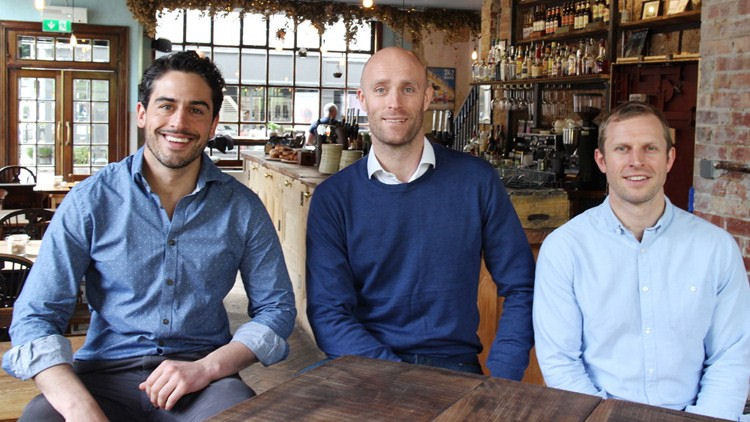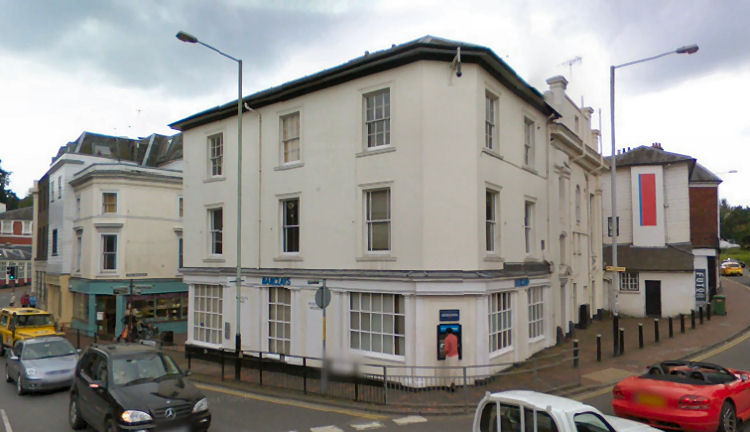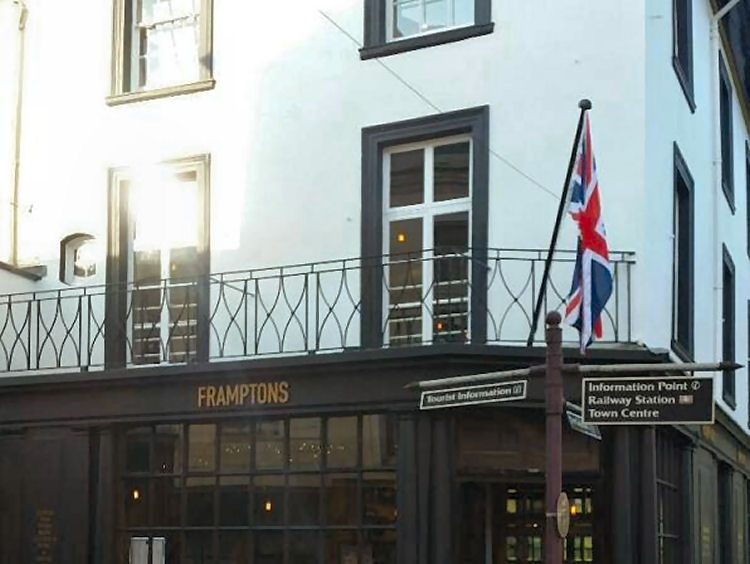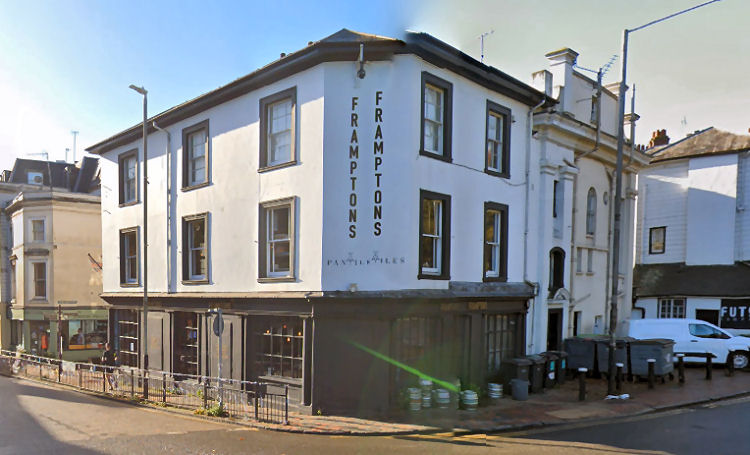| From the
https://www.bighospitality.co.uk By Finn Scott-Delany, 4 May 2018.
Military manoeuvres: The Framptons trio on all day dining.
A squad of former paratroopers have swapped military discipline
for genteel all-day hospitality. Framptons has sites in Ringwood,
Tunbridge Wells and Bath.
After retiring from the military towards the end of 2015,
paratroopers Tom Walker, Ed McAdam and Sam Westlake found themselves
searching for a second career. The former officers had become
friends during their posting in south Wales and were keen to work
together on a business venture.
It was food and drink that satisfied all their interests, with
Westlake in particular being something of a foodie, so when the
opportunity came in the shape of an old grain store in the New
Forest town of Ringwood, in Hampshire, going by the name of
Framptons, they grabbed it.

Market towns target
The three partners gutted the Framptons site and set about expanding
and re-imagining the space, taking its original features, and
creating an all-day café, bar and restaurant. “The place we
inherited was an all-day operation in a high street location, so it
lent itself to continuing as an all-day offer”, says McAdam. “We
really want people to come in for coffee in the morning, have
breakfast, have a business meeting, a cocktail or beer, watch the
rugby, or come with the dog or a pram. It’s an open house, not tying
itself to a particular theme. We want to be a hub for the
community.”
With follow-up sites in Tunbridge Wells, Kent, which opened in 2016,
and Bath, which followed a year later, what Framptons lacks in site
numbers it makes up in geographical stretch. Part of the trio’s
business plan has been to target high streets in affluent market
towns, which is why, instead of clustering
their openings, they have struck out in places that fit their target
demographic and spending habits.
“Ringwood is an historic market town with some wonderful buildings,”
McAdam says. “It’s on the up, with lots of new money, commercial
premises, good schools and the potential to expand.”
That said, they are also open to more secondary towns where rents
are more affordable, which could speed up future expansion. Each
site has its own characteristics and customer base. Ringwood’s
clientele is a mix of locals and travellers, either passing by or
holidaying in the New Forest or Dorset coast, which makes for a
varied trade, leading to more of a wet-led operation than the other
two sites.
Bath, by contrast, is not considered to be a boozy city by the trio,
despite its student population and spikes in drinks trade during
rugby matches, with Framptons having a greater focus on brunch and
business meals.
Tailoring the offer.
Framptons might be the only up-and-coming all-day offer that isn’t
going down the craft beer route. While the trio have nothing against
it, they say that craft beer has yet to take off in a meaningful way
in both Bath or Tunbridge Wells, meaning that they have had to
create a more middle-ground beer offer. The beer list differs from
site to site, with the likes of Birra Moretti, Heineken and Amstel
on tap. The Bath site serves Krusovice tank beer while New Forest
has the largest cask ale offer, with a five-strong selection.
Beyond beer, the drinks offer is more comprehensive and
sophisticated. Each site has a strong cocktail list as well as a
large gin selection and the company also serves English sparkling
wine alongside prosecco and champagne. Coffee is taken seriously,
and is sourced from Caravan Coffee Roasters while hot chocolate
comes from Melbourne-based cacao artisan and chocolate ‘brew house’
Mörk.
The food offer follows a similar tack, with each restaurant aiming
for a broad appeal with female-friendly lighter options as well as
more substantial meals, with seasonal menus changing each quarter.
Menus differ at each site, with the trio keen to try out different
variations of dishes in different locations, its three-strong burger
offer being a case in point.
Burgers at Tunbridge Wells are a Tottingworth Farm beef burger, a
falafel option and one made with buttermilk chicken, while in the
New Forest a smoked confit duck burger replaces the chicken option
and, in Bath, the falafel burger is swapped out for one made with
bacon and blue cheese. The same goes for its sandwiches, with the
menus at and New Forest and Tunbridge Wells completely different
(sandwiches aren’t served in the Bath Framptons).
Locality is something that is shouted about on the menus, with each
featuring either a map of the local suppliers it uses or their
distance from the restaurant (the closest is 520 yards) and the trio
are at pains to create or modify dishes to reflect the location. At
Tunbridge Wells, its Pantiles crumpet – named after the area in the
town – is made using whisky-smoked Kentish beef short rib; in Bath,
it becomes the Bath crumpet, made with Somerset beef.
Style-wise the team tries to use some element of the building’s
prior use, with Tunbridge Wells – a former Barclays Bank –
incorporating some interesting original features, such as a money
lift. “We are at the stage of establishing exactly what we want it
to look like,” says McAdam. “Though the buildings are different, you
should be able to come in and get that Framptons feel.”
In addition to its three sites, the company has also in the past
worked with brewer Bath Ales for its The Lodge pop-up at the city’s
famous Christmas markets, with it creating a food menu for its
alpine-themed stall.
Special ops.
So how does the founders’ military background inform their style as
operators? Though the disciplines are worlds apart, McAdam believes
there are skill sets they can bring to the trade – as well as the
camaraderie of going into business with former para mates.
“For me, working with those guys before, having trust and teamwork
and a similar ethos and values, negated some of challenges of going
into business together,” says McAdam. “Going from the military to
running your own business is a shock – your finances, friends and
livelihoods are all in one pot. In the military you know you’re
getting paid each week, it’s all very segregated and controlled.
It’s very structured, you know what’s left and right.”
“Running your own business is very fluid. You can spend every day
looking at things, you’ve got to learn to prioritise. Discipline has
certainly got its place in the industry, it’s just a case of
tailoring it. Some of our staff are only 17 and just doing their
A-levels, if you press them too much, there’s only so much they can
give. In terms of instilling values and standards it’s really
useful. You want staff to embody what you’re about.”
After growing fairly quickly to three sites, with little industry
experience, the team is keen to take stock and work on improving the
small things. One area will be a target to source produce from
within a 20-mile radius, with more seasonality in menus.
They will also remain on the lookout for further opportunities, with
an aim to reach 10 sites overall in the next few years. “We are very
conscious about managing that growth, because one thing we have
learnt is the risk of growing too quickly,” adds McAdam. “You can
have one in every five sites pulling on the rest. We don’t want to
be in that position.”
This feature first appeared in MCA, Restaurant’s sister title for
eating and drinking market insight. |



